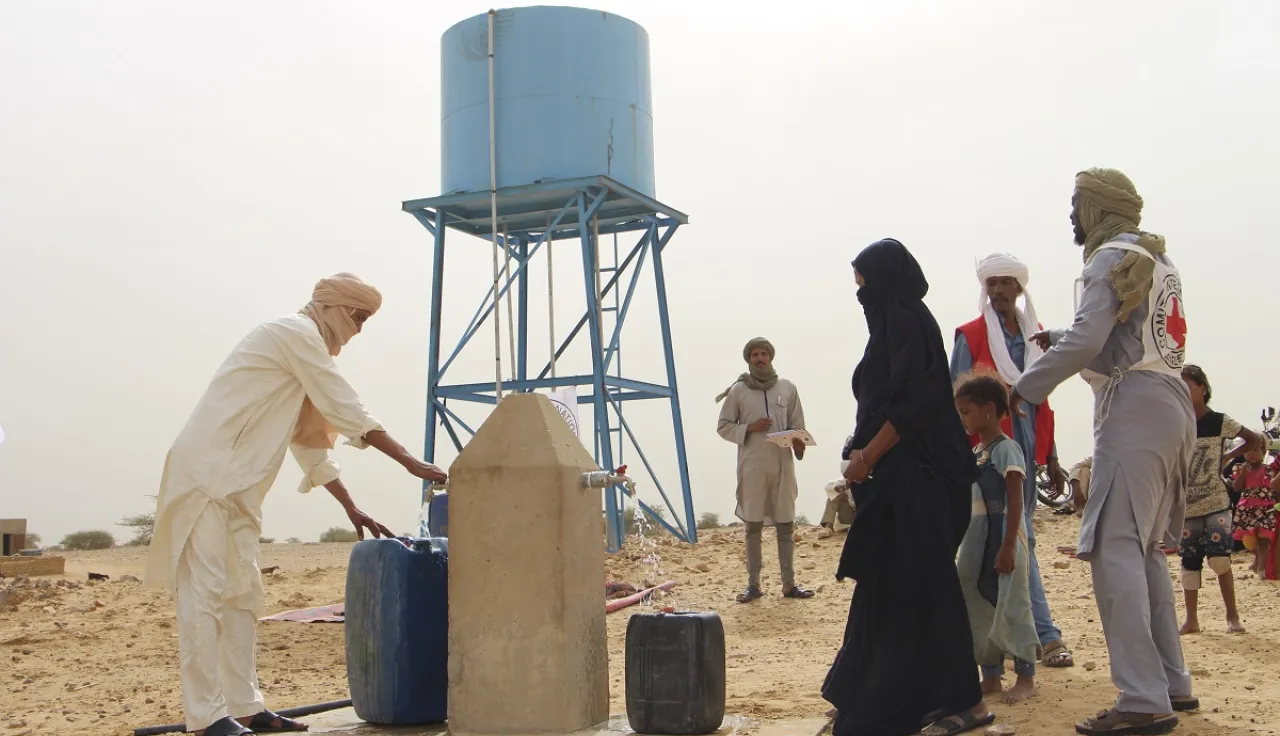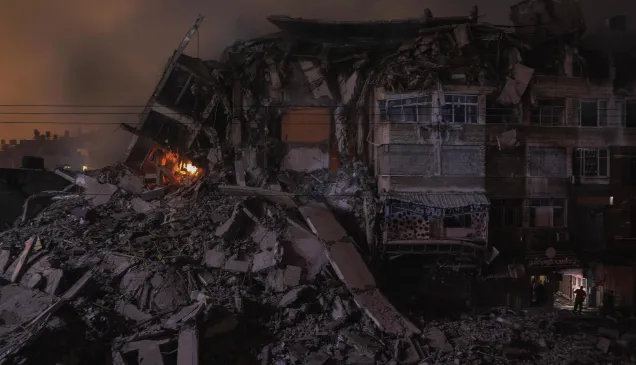Excellencies, ladies and gentlemen,
I am honoured to speak today on this important topic that goes to the heart of the mission and mandate of the International Committee of the Red Cross. On behalf of the ICRC, my thanks go to Switzerland and Mozambique for the invitation and for organising this timely meeting alongside the landmark UN Water Conference.
This comes at a time when global humanitarian needs are soaring due to multiple crises that are becoming longer and more complex while resources to respond are shrinking - our water and sanitation programmes doubled in the past 10 years and are currently serving over 30 million people a year.
When water services are disrupted or destroyed due to armed conflict – sometimes by the use of heavy explosive weapons – the humanitarian consequences are severe and far-reaching, not least because many essential services are closely interconnected. For example, even if medical facilities are not targeted directly, they may feel the effects of indiscriminate or targeted attacks on other services with life-changing consequences: a single surgical intervention in humanitarian settings requires at least 100 litres of water.
Protecting water services is not only about ensuring delivery – it also requires repairs and maintenance. The needed staff, supplies and goods as well as their import or transport are often stalled by access restrictions. These may be dictated by continued active fighting between warring parties, or by sanctions that do not consider adequate humanitarian carve-outs.
These delays risk triggering crises of larger and more damaging scale.
So what can be done? For the ICRC's part - as a neutral, independent, and impartial humanitarian actor – we work to ensure that the most affected communities on all sides of a conflict have access to safe water in an inclusive manner. This requires both a quick response as well as longer term support to local authorities and service providers to help ensure continuity in the supply of safe water.
This in turn means working in partnership – within the Red Cross and Red Crescent Movement and beyond - to find durable solutions for sustainable humanitarian impact.
For example, in 2022, the ICRC worked with the Congolese Red Cross and local service providers to ensure access to water and sanitation for some 2 million people in the Democratic Republic of Congo to mitigate public health emergencies caused by protracted conflict. In Syria, along with the Syrian Arab Red Crescent, we rehabilitated 32 water facilities across the country.
Prevention is undoubtedly better than cure. This means strengthening compliance with the international humanitarian law rules protecting water resources, related infrastructure and the natural environment during armed conflict. This requires taking constant care to spare civilians and civilian objects from harm in the conduct of military operations – by respecting the basic principles of distinction, proportionality and precaution.
The primary responsibility for respecting international humanitarian law – and ensuring respect – falls to States and parties to armed conflict. It is up to them, first and foremost, to show political will and good faith in protecting those affected by armed conflicts – no matter who they are, or where.
The unanimous adoption of the landmark Security Council resolution 2573 was an important and encouraging sign of such political will.
Yet the reality on the ground, sadly, continues to reflect a dire lack of protection for many millions of people affected by armed conflict.
In this light, I make three clear calls to States today:
One: That all parties to armed conflict, and those who support them, work for better respect of international humanitarian law – in particular the rules on the conduct of hostilities that protect civilians and civilian objects.
Two: That States and parties to armed conflict fully – and swiftly – implement Resolution 2573, recognizing the importance of protecting critical infrastructure, personnel and goods. As part of its implementation, we call for the avoidance of using explosive weapons with wide area impact in populated places, due to the likelihood of indiscriminate effects. We commend the more than 80 States that have endorsed the landmark 2022 Political Declaration on this issue – and we urge others to follow.
Three: That States rapidly implement Resolution 2664, establishing a humanitarian carve-out in UN sanction regimes, into their domestic sanctions systems. Without full compliance with this landmark resolution, we and other humanitarian actors cannot carry out our necessary work with banks, donors, suppliers, and impacted populations to alleviate the worst effects of war, especially regarding essential services. Adopting ad hoc humanitarian exemptions after large emergencies such as earthquakes is the right way to go, and so is building more substantive exemptions for conflict settings to avoid deepening humanitarian crises. We commend the States that have already reflected the humanitarian carve-out in all their national and regional sanctions systems, including so-called "autonomous" sanctions structures - and urge others to follow.
Action in these three areas would go a long way towards ensuring better protection of civilians overall, in armed conflicts everywhere.
Thank you.



